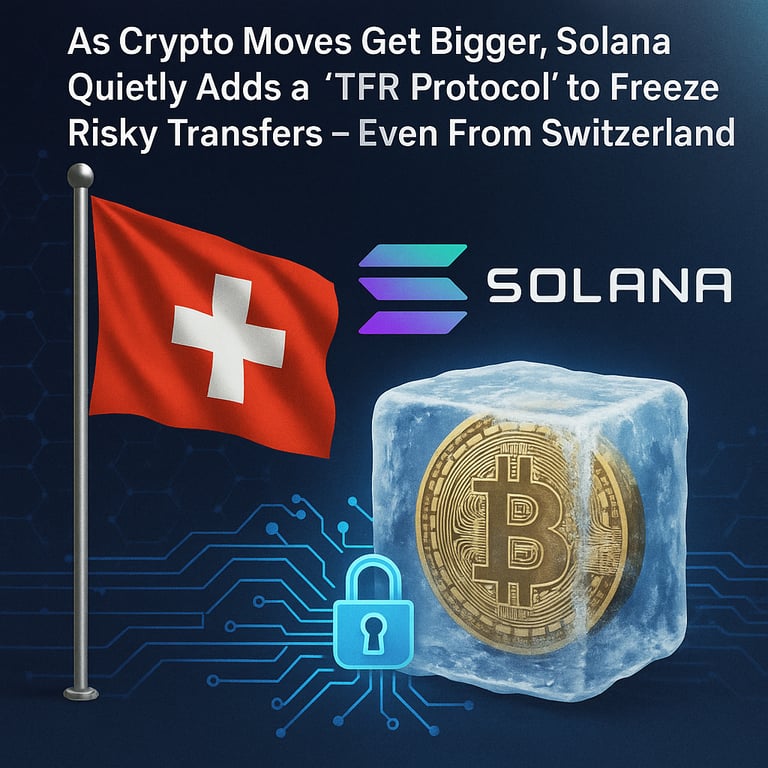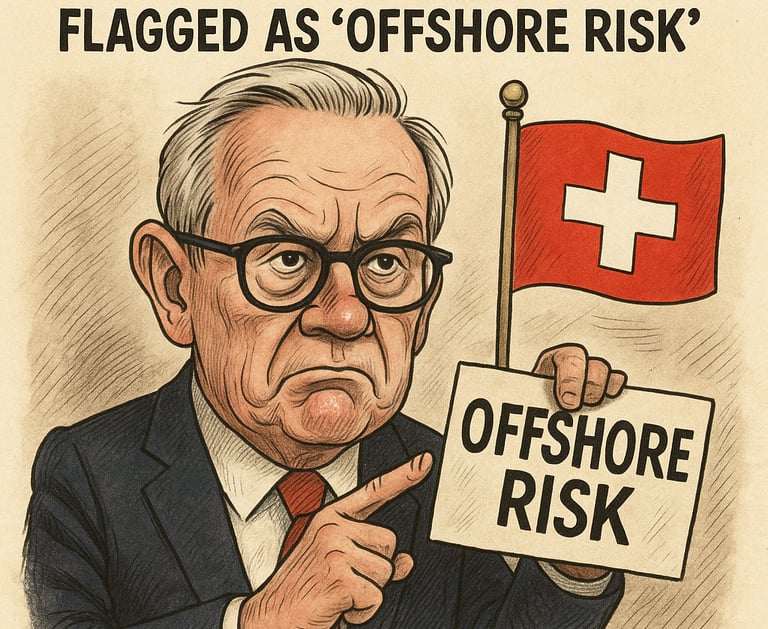As Crypto Moves Get Bigger, Solana Quietly Adds a “TFR Protocol” to Freeze Risky Transfers – Even From Switzerland
Solana Swiss News & Insights | By Gabriel Stern – Senior Crypto Correspondent


📰 Solana Swiss News & Insights | June 22, 2025
By Gabriel Stern – Senior Crypto Correspondent


What was supposed to be a routine transaction out of a Swiss-based private wallet last week ended in an unexpected 3-hour hold and a six-figure "security verification" request.
The user — a long-time investor moving $400,000 in SOL to an independent wallet — found himself subject to Solana's new protocol without any prior notice.
And he’s not alone.
In recent weeks, multiple high-value transfers on the Solana blockchain have been temporarily frozen pending what appears to be an automated risk verification.
While no official press release was issued, Solana quietly rolled out a new mechanism called the TFR Protocol — short for Temporary Freeze & Release — as part of a June 2025 patch identified as v1.15.3–GeoCom.
“It’s not censorship. It’s a buffer,” said a source familiar with Solana’s internal compliance discussions.
“We’re seeing sophisticated actors exploit non-custodial channels to bypass sanctions. This was long overdue.”
Transfers From Switzerland Flagged as “Offshore Risk”
The change comes amid growing pressure on blockchain platforms to self-regulate in the absence of unified international compliance standards.
Switzerland — often seen as a crypto haven due to its neutrality and flexible financial laws — has ironically become a hotspot for flagged activity, according to analytics from Chainalysis and TRM Labs.


“The fact that a transaction originates from a private
Swiss wallet doesn’t exempt it from screening,” said Dr. Ella Gutman, a regulatory strategist at Web3 Policy Labs.
“Especially if the wallet is unverified and the amount exceeds certain risk thresholds.”
How the TFR Protocol Works
Behind the scenes, here's what’s happening:
Why This Matters
Any outbound transfer over $250,000 to a non-custodial wallet (like Exodus, Atomic, or Ledger) now passes through a smart screening layer.
If the wallet isn't affiliated with a licensed institution, the system automatically triggers a temporary freeze.
The sender is then prompted to submit a Digital Security Guarantee — a refundable amount typically between $90,000 and $130,000.
Once verification is complete (usually within 2–3 hours), both the original funds and the guarantee are released to the destination wallet.
Failure to submit the deposit within 24 hours may result in escalation, flagging, or delayed arrival at the exchange endpoint.

A recent report by DeGuard Analytics shows that nearly 1 in 5 Solana transactions above $250K were flagged for manual or automated review in Q2 2025.
Most were routed from personal wallets located in high-volume offshore jurisdictions like Switzerland, Singapore, and the UAE.
While users have expressed concern, Solana insiders say this mechanism is temporary, designed to prevent global blacklisting of the network and allow time for broader regulatory alignment.
“This is not about punishing anyone,” said the anonymous source.
“It’s about keeping the network clean and functional in an increasingly complex global environment.”
Solana’s new TFR protocol adds a quiet but serious layer of risk control. If you're transferring large amounts to unregulated wallets — even from stable jurisdictions — don’t be surprised if your transaction is held pending a refundable deposit.
For now, it’s just business.
But the message is clear: compliance is no longer optional.
Insights
Timely updates on Solana blockchain developments and news.
News
Blog
solana email
© Solana Swiss News 2025. All rights reserved.
ti
info@solana-swiss.news
